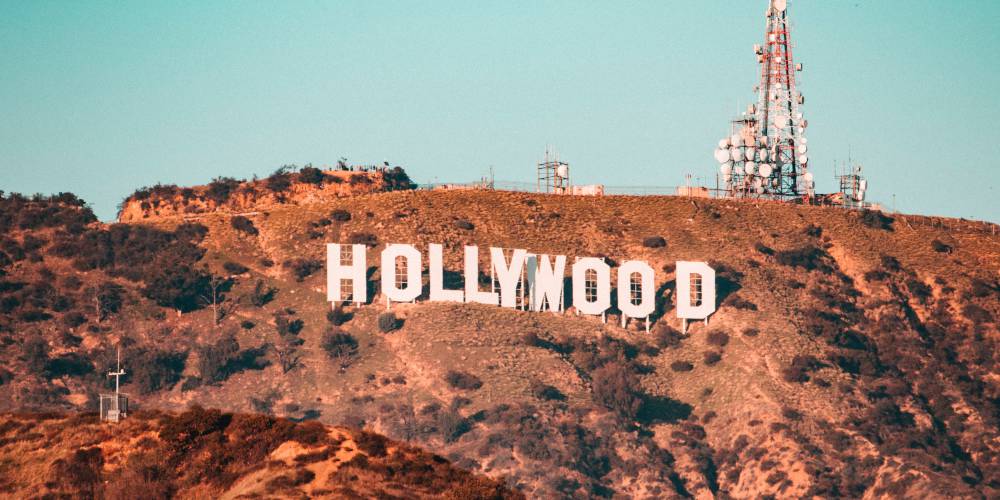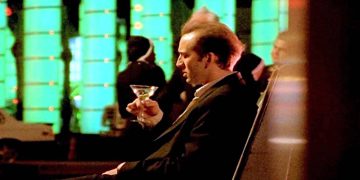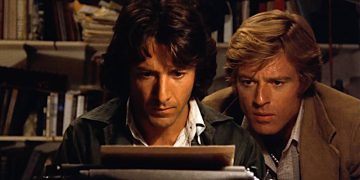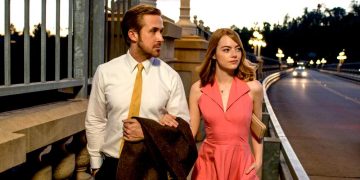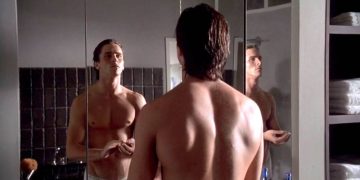Screenwriters are the men and women who work their magic from behind the camera, setting the foundations on which great movies can be built. Sadly, they're often unsung heroes.
Since writers rarely participate in promotional tours and marketing stunts, it makes sense that most people don't know who they are. The director and the main cast often lap up the limelight.
But without screenwriters, directors and cast would have nothing to work with. In that sense, screenwriters are some of the most important workers in the film creation process.
Here are my picks for the best screenwriters in Hollywood who truly deserve all the fame and recognition they end up getting.
Note: I'm excluding directors who write their own works, meaning you won't see the likes of Quentin Tarantino, Wes Anderson, Jane Campion, Stanley Kubrick, or Woody Allen.
10. Eric Roth
Eric Roth is the go-to guy when you want a movie that's going to be a commercial hit but also capable of pulling in a few Oscars. He's the mind behind Forrest Gump (1994), The Insider (1999), and Munich (2005).
He has a knack for adapting material for the big screen and making it look easy, with many praising his ability to maintain subtlety while giving us emotional payoffs that leave us weeping.
9. Paddy Chayefsky
Paddy Chayefsky had a volatile demeanor that often came through in his writing. His scripts are all red-hot with passion—whether that passion comes from love, anger, or even sadness.
With Marty (1955), Chayefsky became the second person to write a film that won both the Academy Award for Best Picture and the Palme d'Or. However, Network (1976) remains his crowning achievement—a prescient story that was so far ahead of its time.
8. Ernest Lehman
Ernest Lehman is one of the most versatile screenwriters in the history of Hollywood. Few can boast the kind of success he often garnered, let alone in the multitude of genres that Lehman mastered.
His most celebrated work is North by Northwest (1959), but he also wrote The King and I (1956), West Side Story (1961), The Sound of Music (1965), and Who's Afraid of Virginia Woolf? (1966).
7. Paul Schrader
Paul Schrader has directed many of his own features, but his screenwriting work with Martin Scorsese will always be remembered for its impact that shaped an entire generation.
With Taxi Driver (1976), which undoubtedly remains Schrader's best contribution to cinema, he managed to tap into the mind of a disillusioned New York populace and make it feel real.
The rest of his work has been characterized by a similar cynicism, though he seems like a fun guy in real life.
6. Charlie Kaufman
Few have been able to write screenplays that are as unique as Charlie Kaufman's. In fact, the cerebral nature of his films—their sprawling narratives, their black humor, their genre-bending forms—is one that's unmatched by any other Hollywood screenwriter.
He's the enigmatic genius behind Being John Malkovich (1999), Adaptation (2002), Eternal Sunshine of the Spotless Mind (2004), Synecdoche, New York (2009), Anomalisa (2015), and I'm Thinking of Ending Things (2020).
That's quite a resume! While he's made the foray into directing his own features (which have all been superlative), he will always be remembered for his innovative writing style.
5. William Goldman
While William Goldman is both a novelist and a screenwriter, he's best remembered for his contributions to cinema.
With Butch Cassidy and the Sundance Kid (1969), Goldman showed that he was capable of writing a critically acclaimed blockbuster.
He did it again and again when he adapted his various novels to film, including Marathon Man (1976), All the President's Men (1976), A Bridge Too Far (1977), and The Princess Bride (1987).
4. Robert Towne
Robert Towne's Chinatown (1974) is universally considered to be among the greatest Hollywood screenplays ever written. However, his work extends far beyond just that.
He was one of the most sought-after screenwriters during the New Hollywood era of the 1970s, with his screenplays dripping with anti-establishment rhetoric and socio-political commentary.
Robert Towne was the singular voice behind many great projects, but much of his writing went uncredited, including on projects like The Godfather (1972), Marathon Man (1976), and Heaven Can Wait (1987).
He also helped out on Bonnie and Clyde (1967) as a script doctor.
3. Dalton Trumbo
Dalton Trumbo was the man behind some of the best movies of classical Hollywood: Roman Holiday (1951), Spartacus (1960), Exodus (1960), and Johnny Got His Gun (1971).
One reason why Trumbo is ranked so high on this list is because of his exclusion from Hollywood productions at the time he was working—he was blacklisted for being part of the Communist Party.
But that clearly didn't stop him. He continued to write celebrated movies—and even won Oscars—long after he'd been ostracized. His high rank here may be a small consolation, but it's one he's earned.
2. Herman J. Mankiewicz
Herman J. Mankiewicz's contributions to cinema stretch far and wide. He was the main writer for Citizen Kane (1941), which he co-wrote with Orson Welles and shared the Oscar for Best Screenplay.
Mankiewicz was also behind The Wizard of Oz (1939). Yep, that's right! This is the guy who went ahead and wrote what many consider to be two of the best movies of all time. Sadly, his work on The Wizard of Oz remains uncredited.
In fact, one must also look at the sheer amount of uncredited work that Mankiewicz did during the Golden Age of Hollywood in order to understand the degree of his genius.
A major alcoholic for almost all of his life, Mankiewicz died young yet left behind a plethora of fantastic films.
1. Billy Wilder
Yes, I know I'm breaking my own rules by including a director on this list, but there truly was no one like Billy Wilder. The sheer number of movies he worked on that went on to receive critical acclaim? Astounding.
He was Oscar-nominated for Best Director eight times (winning twice) and for Best Screenplay thirteen times (winning three).
If we were to pick his four most famous works, they would have to be: Double Indemnity (1944), Sunset Boulevard (1950), Some Like It Hot (1959), and The Apartment (1960).
On top of all that, Billy Wilder was one of the driving creative forces behind so many more, with much of his help going uncredited.
The true extent of his storytelling genius may never be known exactly, but he left us with plenty of great films to enjoy. Without question, Billy Wilder was the greatest screenwriter in Hollywood history.
